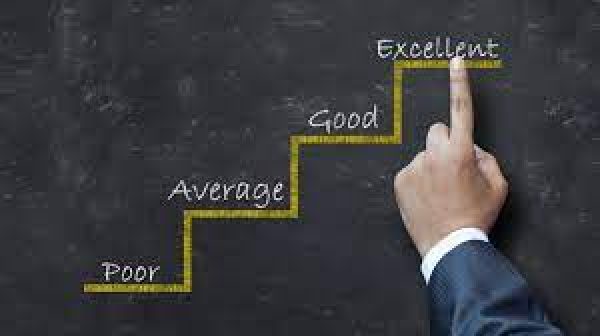When veterans of AngelMD hear a startup presentation and receive the startup’s projections, we have learned enough to know that if they get to a successful conclusion, very little will look like the original plan.
Startup success always depends on interaction. It’s critical in business-building and so is being able to determine the ability of the entrepreneurs to iterate. Markets are dynamic, so companies that aren’t able to successfully identify customer-market fit and adapt to changing market conditions are not going to survive.
This seems patently obvious, so why is it that so few companies are able to make it happen? This isn’t limited to startups, by the way. The largest of companies are vulnerable to a lack of iteration and innovation. Kodak is Exhibit A. A hundred years of success and no longer exists.
Much of this comes down to culture. In startups, the culture is far more concentrated with a small handful of people…typically the Founders. Interestingly, this concentration is actually still similar in bigger organizations, and has been the topic of endless business books and case studies, but that’s not our focus.
Customer-Market Fit. Delivering something of value to a customer requires a few components. First, the startup needs to know who the customer actually is. While a physician may prescribe a product, the patient might be the actual user, for example. Or, the physician may use a product, but their clinic or hospital is the one writing the check. These dynamics are critical. There may be more than one master to please. There very often is.
Some of the best startups we observe are those that come out of NIH training. The NIH has done a great job of integrating Steve Blank’s Lean Startup Methodology into their curriculum. At its essence, this program creates a rigor at the outset around discovering the needs of the customer and determining the willingness to pay for the product or service. Typically, they have an entrepreneur conduct 100 customer interviews in order to filter bias and determine if there is an economic case for the product or service. The lack of this understanding is common in a good portion of startups. They have a shiny widget and assume the world will beat the door down. Never happens.
Margin. It’s also important to get a sense of the cost and potential margins around a product or service. Several years back, we there was a promising technology in the AngelMD network that had raised well over $10M before determining that the product was going to cost 3X what they could charge in the market. The only solution at that point was to entirely re-engineer the product which would have cost millions. Investors decided to take their licks right there and then and shut the company down. This isn’t always preventable, but investors need to be thinking about it at a minimum.
Market Shifts. We won’t use Covid as an example of a Market Shift because it’s what we call a Black Swan event. It’s impossible to account for every possible scenario in life. If we had a plan for the outbreak of nuclear war, Tornadoes etc, we would war game ourselves until the end of time. That’s not realistic. But we can anticipate some macro factors. What if the economy turns South for a few years? What if the public markets dry up and startup exits along with them? What if it takes 2X longer to get the prototype right or FDA approval? Can we survive those turns? The realistic answer is generally not to have a war chest of cash. Not only is it unduly dilutive, its generally not possible. Startups run on thin bank accounts until they generate “lift” in almost all cases. So, we need to have some understanding of how vulnerable the concept is to missing key assumptions.
The point of truly effective due diligence, it turns out, is not to determine of the answers to select questions, or the data in a business plan, are accurate. They probably aren’t. To think anyone truly knows is intellectually dishonest. Rather, we need to determine how effectively the founding team thinks on their feet. How do they respond to various scenarios in which assumptions are wrong? Defending the assumptions, to some degree, is ok…but do they have the attitude that if and when they are wrong they can course correct?
We’ll explore this trait further in a subsequent post.



